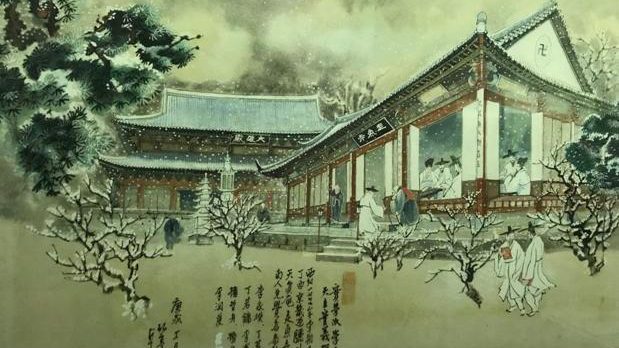The Koreans found God in a library. Where intrepid Gospel-bearing missionaries were responsible for evangelizing the newly discovered cultures in the age of exploration, a remarkable exhibit in the Charlemagne wing of Saint Peter’s Square shows how Korean intellectuals set off in search of truth and found Christ.
“On Earth as it is in Heaven,” sponsored by the Archdiocese of Seoul, the Seoul Museum of History, Seoul Metropolitan Government and the Korean Embassy to the Holy See, celebrates 230 years of the Catholic faith in Korea.
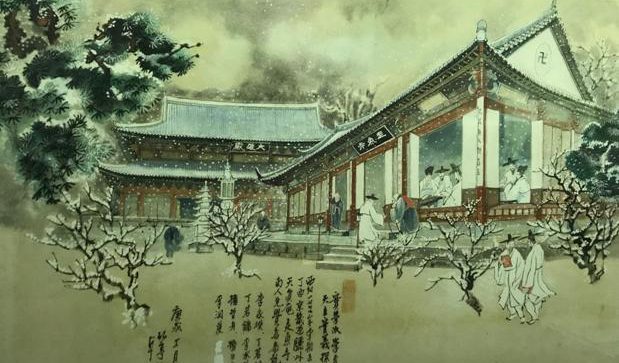
Search for knowledge led a group of scholars to China where they found books about the Catholic faith written in Chinese characters. The truth contained within brought one, Lee Seung-hoon, to be baptized and he returned to Seoul in 1787, where he shared his faith forming the first Korean Catholic community. The 17th-century maps in the opening rooms of the exhibit reflect how the view of the world rapidly expanded, a fitting metaphor for the introduction of Christianity into the society. When the first priest, Fr. Chu Mun-mo, came from China to minister to the Korean Christians in 1795, he found a land already evangelized by lay people.
The Korean Kingdom of Joseon reigned from the 14th to the 19th century, and promoted Confucianism as its religious philosophy. While the teaching emphasized virtues such as justice and honor due to family, it also divided the society into strict social classes. Christianity challenged the rigid structure with its message of equality, so the ten-year old community, 4,000 members strong, soon found themselves sharing the ancient Christian experience of persecution.
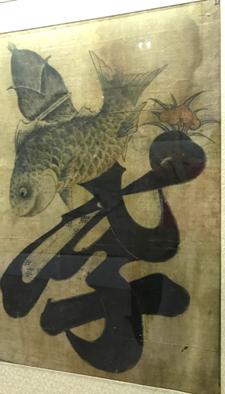
The exhibit takes us up into the mountain villages where the Christians went into hiding. Unable to openly gather, they sold clay vases to earn a small income. Carved on several of the vases on display are small crosses, not unlike the fish (ιχθυς) symbols of paleo-Christian art; these simple scratched crosses allowed the Christians to find each other.
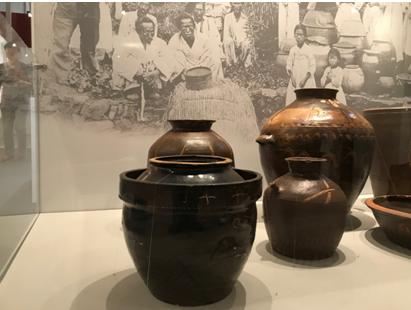
The torments that awaited the Korean Christians are reminiscent in their savagery of those of the Roman Empire. A letter written by St Kim Taegon Andrew describes with illustrations the beatings, beheadings and public crucifixions that this little community withstood. St Andrew was the first Korean to be ordained a priest and his heroic witness during his passion served as example for his flock.
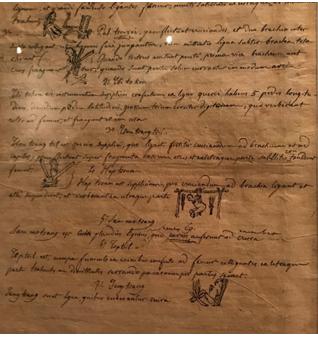
“Once born, no one can escape dying.” He calmly told his persecutors, “What I desire today is to die for God. Whether you question me today or tomorrow, my answers will be the same.” Martyred in 1846, he was canonized along with his 102 companions by St John Paul II. Their feast day is September 20.
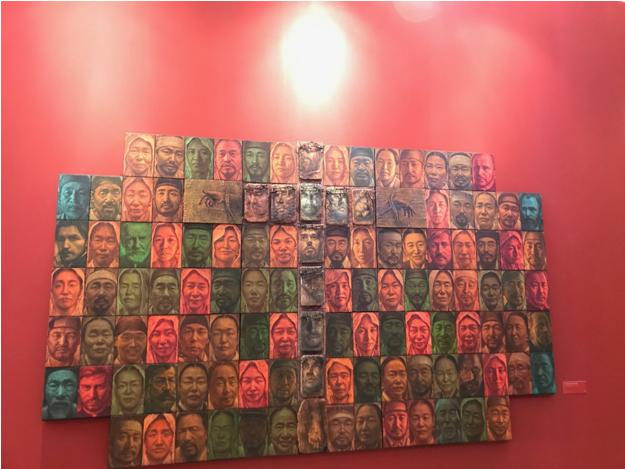
Tiny objects like rosaries, crucifixes and medals testify to the fragile embers of the faith that the survivors kept alive over a century of persecution, transmitting teachings, baptizing and quietly evangelizing. A field of ceramic bowls in the exhibit hints at the number of martyrs, 8,000-10,000, of which 226 have been canonized. Six of the bowls are original and contained the remains of those killed in the persecutions of 1839, including a mother and daughter.
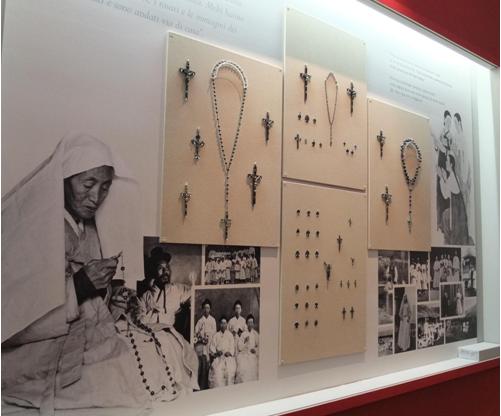
Women are given special honor in the exhibit, from the delicate and soothing watercolors of the Madonna and Child that solemnly regard the miniscule remnants of the martyrs faith, to the heroic witness of Blessed Colomba Kang Wan-suk, one of the first Korean martyrs.
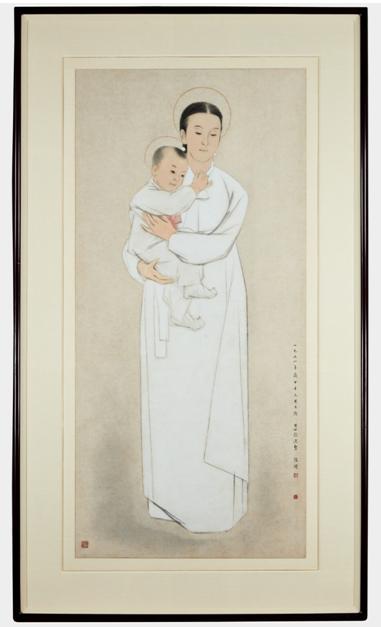
The faith of the Koreans blossomed again after the long winter of persecution with rapid growth. In 1950, Catholics in Korea numbered 500,000 (2% of the population), today there are 5,740,000 (10% of the population), ministered to by 5,100 priests.
The Catholic Church of Korea has been at the forefront of the democratic movements and the struggle for human rights. The exhibition closes with the mission of the living faith among the Korean people to bring peace and unity to a divided country.
The story of Christian Korea, past and present, eastern culture encountering a faith born in the west, is told in a striking black lacquer mural decorated in mother-of-pearl. There, Michelangelo’s Pietà hovers above images of the Korean martyrdoms, and a labyrinthine rosary joins the Korean flag to those of many other nations.
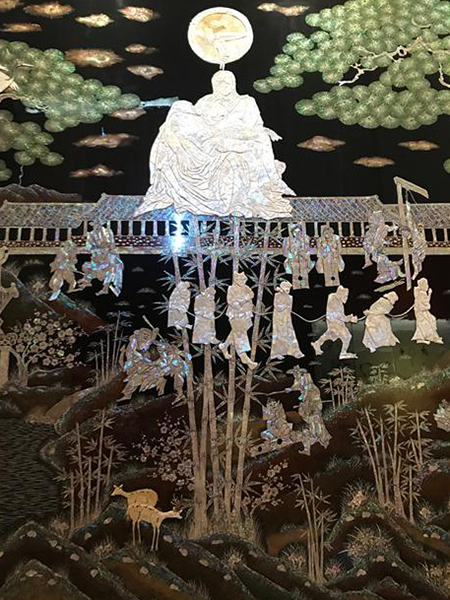
On display until November 17 in the Charlemagne wing of St Peter’s Square, the exhibit offers free entry, inviting visitors to explore this inspiring history told through humble relics and bright images of hope and peace.
Ambassador Jonghyu Jeong, who represents South Korea’s mission to the Holy See and co-sponsor of the exhibit, used the words of Nobel prize-winning poet Rabindranath Tagore to describe his hopes for this show.
Tagore’s “Lamplight of Asia,” reads:
O Korea, You were a shining light in Asia In the Golden Era of the Orient Torch it once more, Then, Thou wilt be a light of the Orient Once more.
In turbulent times, the Church shines with beauty, both in the lives of its saints and in its art.
